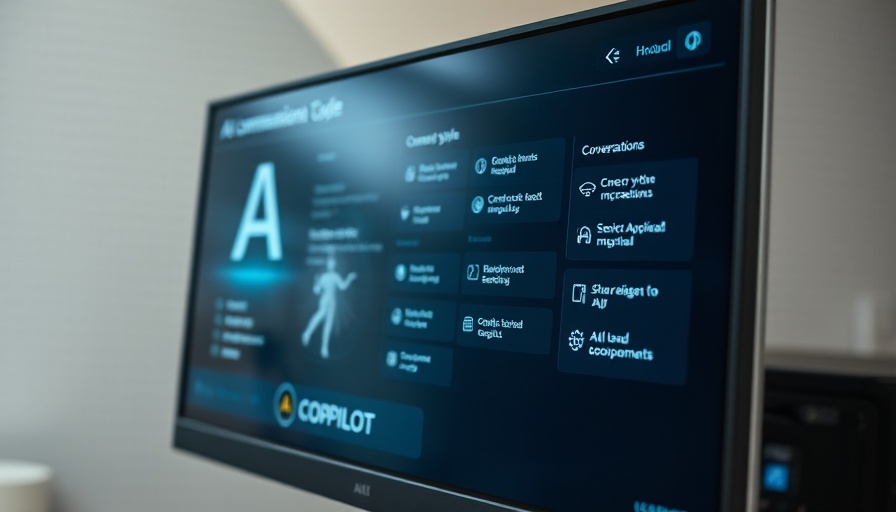
The Battle of AI Chatbots: A Tale of Censorship and Misinformation
As artificial intelligence continues to revolutionize the digital landscape, two prominent players, Microsoft's Copilot (formerly known as Bing Chat) and OpenAI's ChatGPT, are at the forefront. Despite the initial hype surrounding their potential, recent findings suggest that Copilot's ability to provide crucial information—and particularly its handling of political inquiries—has become questionable. While the excitement around AI technologies like Copilot has been palpable, users are now experiencing frustration over its limitations, particularly in relation to vital election information.
AI's Role in Democracy: The Increased Stakes
The 2024 elections are looming, and with them, the responsibility of AI tools to deliver accurate and trustworthy information. Yet, multiple reports indicate that Microsoft's Copilot is falling short in several critical areas. A study by AI Forensics and AlgorithmWatch revealed a disturbing trend: one in three responses from Copilot contained inaccuracies about elections in Germany and Switzerland. Moreover, many users have expressed disbelief over the lack of straightforward answers Copilot provides, particularly when asking about elections and candidates. The responsibility of AI isn't merely to generate casual responses; it is now intertwined with democratic processes, making the stakes higher than ever.
Misinformation: A Systemic Issue
In a similar vein, a report from WIRED corroborates the findings regarding Microsoft's handling of election queries, suggesting a systemic failure. Not only do users report receiving misleading or outright false information, but they also frequently experience evasion from the chatbot when they request basic electoral details. This evasion is particularly concerning in the context of the 2024 elections, when disinformation campaigns could have far-reaching consequences. Simply put, voters cannot afford to treat AI-generated information as inherently reliable.
Contrasting Approaches: Copilot vs. ChatGPT
Interestingly, while users querying about French elections received minimal information from Copilot, ChatGPT provided comprehensive insights, including precise election dates and candidate lists. This disparity raises questions about Microsoft's current approach to AI training and information dissemination. With significant differences in user experience between the two tools, there's increasing pressure on Microsoft to refine its Copilot model, especially with the rapid advancement of competing platforms like DeepSeek, which has seen a surge in popularity.
Understanding the Consequences: What Needs to Change?
The implications of these findings go beyond personal grievances or tech industry rivalries; they impact our democratic fabric. As the awareness grows around the inaccuracies propagated by AI tools, users may lose trust in the technology altogether. If one-third of responses contain inaccuracies, as reported, this creates confusion and misinformation surrounding election participation. Moving forward, it is imperative for companies like Microsoft to enact stricter oversight and continuously update the algorithms to ensure that AI can responsibly assist in an informed electorate.
A Call to Action: Demand Accountability
As AI continues to intertwine itself with our daily lives, especially in areas as critical as political engagement, the responsibility lies with users to remain vigilant. Demand more accountability, not just from tech giants like Microsoft, but also from ourselves as consumers of technology. Political engagement requires accurate, timely information, and the upcoming elections demand that AI tools rise to the occasion. It is essential to utilize these technologies with the best judgment and verify the information obtained through them.
 Add Row
Add Row  Add
Add 


Write A Comment